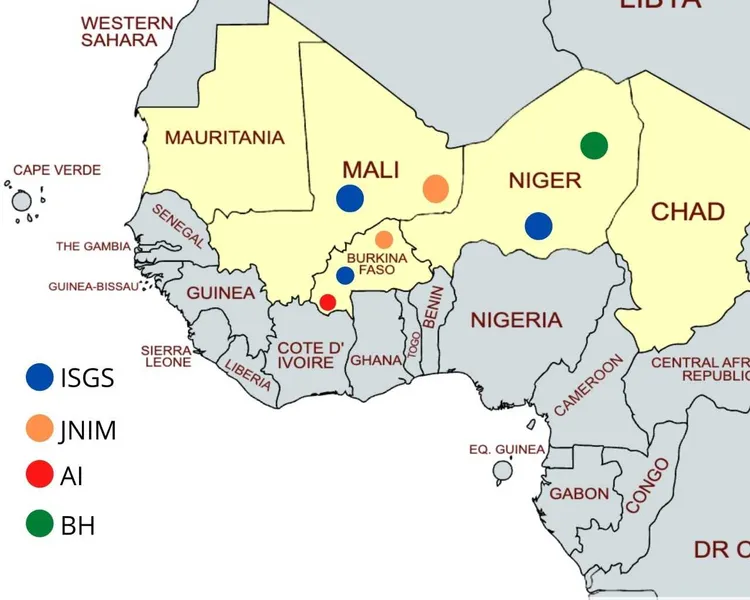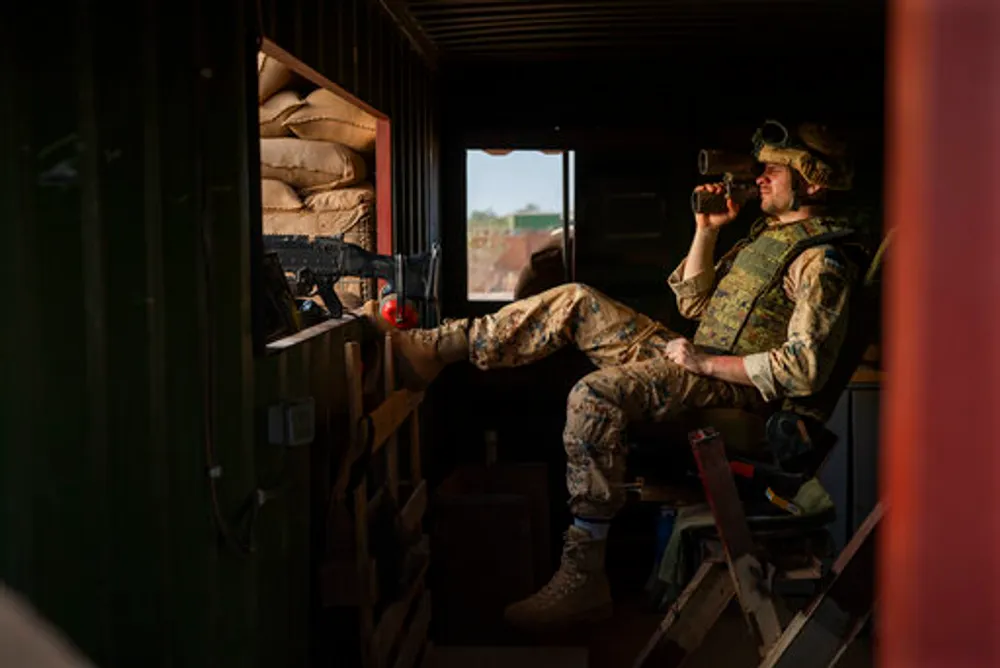The Sahel is a flashpoint of conflict between jihadist movements and government troops, both local and foreign
The Sahel region of northern Africa, a notorious flashpoint of jihadist attacks, is losing a major military presence – France.
Both local and foreign forces are in the midst of an armed rebellion headed by Islamic State (IS) movements and al-Qaeda affiliated groups.
But amid growing distaste for the European involvement, France announced in February that it would withdraw its troops from Mali, part of a mostly lawless and violent tri-border region.
After almost a decade of fighting the jihadist insurgency, which still poses a major threat to the region, i24NEWS takes a look at the French anti-jihadist operations in the Sahel.
Sahel’s jihadist threat
After suffering setbacks in the Middle East, the Islamic State and al-Qaeda shifted their focus to the unstable Sahel region – a strip of land beneath the Sahara Desert that includes Chad, Niger, Mali, Burkina Faso, and Mauritania.
There are four active jihadist groups in the Sahel:
- Islamic State in the Greater Sahara (ISGS) – African branch of the IS seeking the return to “true Islam.”
- Jama’at Nusrat al-Islam wal-Muslimin (JNIM) – Official branch of Al Qaeda in Mali, made up of four different movements.
- Ansaroul Islam (AI) – Formed in 2016 in Burkina Faso with anti-Western sentiment and jihadism.
- Boko Haram (BH) – Founded in 2002 with the goal to “purify” Islam in northern Nigeria.

Boko Haram and Ansaroul Islam’s presence have been diminished due to pushback by local and foreign government forces, as well as fighting between the Islamist groups over territory and differing ideologies.
Attacks by both ISGS and al-Qaeda affiliate JNIM in the Sahel have killed several thousand people and displaced tens of thousands.
Operation Serval
As part of the fallout from the Libyan Civil War in 2011, instability in northern Mali was exploited by groups tied to al-Qaeda and the IS.
By 2012, jihadist militants seized control of Mali’s desert north and started to push into the west African state’s center.
In response to a Malian request for military assistance, France intervened in January 2013 with 5,000 troops in what was coined Operation Serval.
France became involved to protect the population of Mali – a French colony until 1960 – as well as the 6,000 French citizens living there at the time.
Named after an African wild cat, Operation Serval ended in the complete re-capture of all Islamist-held territory.
Three of the five Islamic leaders at the time, Abdelhamid Abou Zeid, Abdel Krim, and Omar Ould Hamaha, were killed during France’s operation.
Operation Barkhane
After French forces successfully regained Mali’s north, France still recognized the need to provide stability in the wider Sahel.
Mali and its neighboring states needed help in combatting the Islamist movements. French officials also worried that if the jihadists took over the region, they would eventually build up the capacity to attack France and Europe.
Thus, Operation Barkhane was launched in August 2014 to assure the security of the Sahel as well as France.
Barkhane is made up of roughly 5,000 French soldiers, headquartered in Chad’s capital N’Djamena, and in cooperation with five former French colonies – Mali, Burkina Faso, Chad, Mauritania, and Niger – referred to as the “G5 Sahel.”
The operation was named after a crescent-shaped dune in the Sahara desert, and remains France’s largest overseas operation.
It engages in everything from combat patrols alongside Malian troops and partner militias, to intelligence gathering, training, and counter-terrorism campaigns.
Between 2013 and 2016, French forces reportedly sustained over 1,270 casualties.
By 2019, France’s Defense Minister said over 600 jihadists were “neutralized,” including two of the top five founders of the Group for the Support of Islam and Muslims.
Takuba Task Force
In March 2020, 11 European governments expressed support for the creation of a task force to be integrated into Operation Barkhane.
Amid a deteriorating security situation in the Sahel, Takuba was established at the request of Mali and Niger to combat terror groups in the Liptako region – eastern Burkina Faso, southwestern Niger, and southeast Mali.
Named after the takuba sword used across the Sahel, Takuba assists the Malian Armed Forces as well as smaller units that operate with AK-47 rifles and primarily use motorbikes as transport.
Against the backdrop of growing anti-French sentiment in the Sahel, Paris recently announced that it would rely increasingly on the Takuba Task Force to take pressure off the French military during its pullout.

